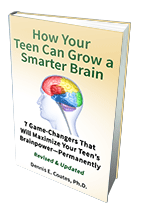My wife has an amazing mind. She’s always my first reader for feedback about my work. She catches nearly all mistakes, points out ways to improve my writing, and makes helpful recommendations. I know why she’s so smart. According to her, her mother read to her while she was still in the womb. I asked her mom about this, and she said, “I didn’t know what I was doing. I was just trying to do what I thought was best.”
Well, this was an amazing stroke of good luck for my wife, because even when she was a toddler, her mom made a habit of reading to her and taking her on weekly trips to the children’s section of the library, where she was allowed to select two books. My wife said she read Dickens’ Tale of Two Cities when she was in middle school, and not because it was on the curriculum. I have a Ph.D. in English from Duke University, and I didn’t read that book until my first year in graduate school. What does reading have to do with being smart? I’ll explain. First, the most obvious consequence: books have content—facts, principles and wisdom—all of which contribute to knowledge, an important aspect of intelligence. But there’s another important consequence. It’s impossible to be rational without something to be rational about. Put another way, you can’t “connect the dots” if the dots aren’t there in your mind.
Where do these dots come from? From language. Every fact and every concept has a word associated with it. If you know what the word means, it becomes a way to understand a certain aspect of reality and to be logical about it.
For example, if a child hasn’t learned the meaning of the words “process” and “results,” then they won’t be able to think about the relation between the two concepts, that process is about how something happens, and results are about the consequences. And it would be hard for a child to consciously act with integrity if they didn’t know what integrity is. So a person’s vocabulary contains the building blocks for the second kind of intelligence: the ability to think about facts, principles and wisdom. The more extensive a person’s vocabulary, they greater their ability to ponder reality in more detail. I’ve known about this since my college years. All my classmates who constantly had a book in their hands made better grades than I did, even if that book was a novel. Indeed, they were smarter than I. I became an avid reader in high school, so I started late. But as an adult, I read over 100 books a year. That’s a lot of stuff to think about! And to put a point on it, all the good people I’ve met in my life who had limited intellects had very limited vocabularies. The bottom line for parents who want their kids to grow up with fine minds and encounter success and happiness in life: help them become kids who love to read. In the best case, read to them at a very early age. Make reading fun and a big deal. Give books as gifts. Read the books they read and discuss them.
Encourage them to look up the meanings of “difficult” words, so they broaden their vocabulary. In another article, I describe the best way to teach your child how to read. Your child can become an avid reader and develop the kind of mind that connects the dots with ease, which will open the door to success in their education, life and work. An ample vocabulary is not the only way to build thinking skills.
 Learn more about this in my book: How Your Teen Can Grow a Smarter Brain.
Learn more about this in my book: How Your Teen Can Grow a Smarter Brain.
Grow the bond with your child through effective listening. Download the FREE ebook, Listen to Understand.

